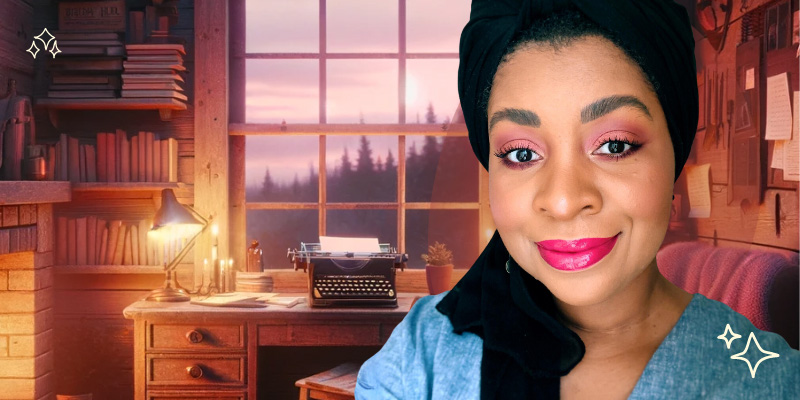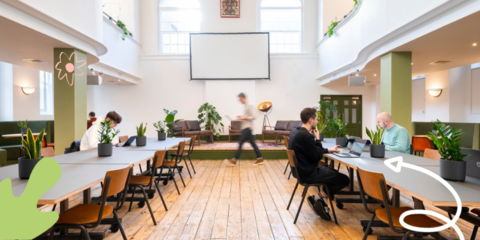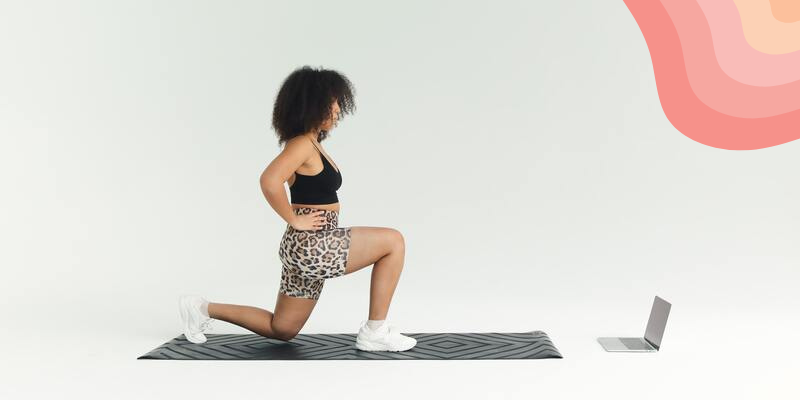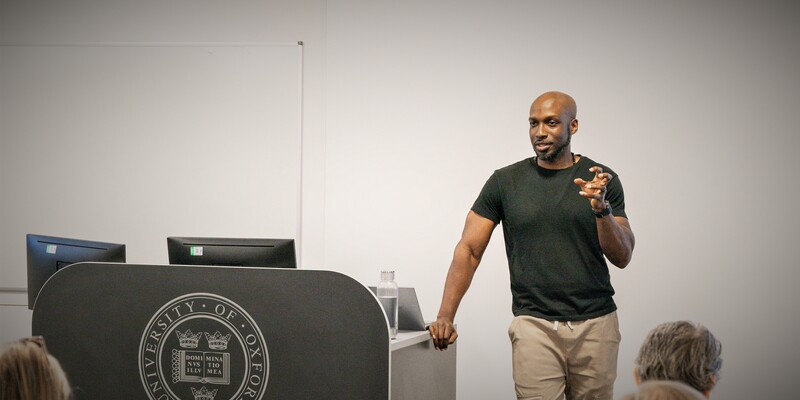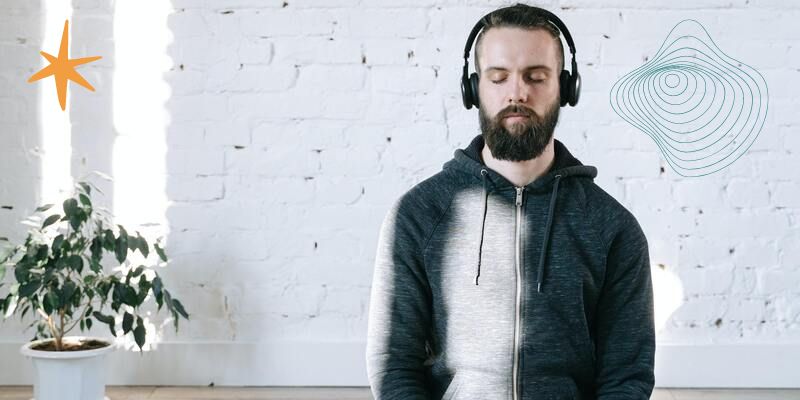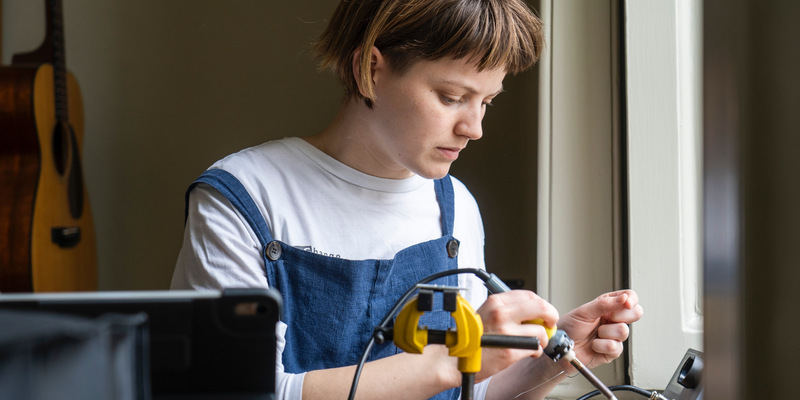Go from reader to creator with these 4 transformative reading habits

By Jen Cropley
•
May 26, 2023
‘The more that you read, the more things you will know. The more that you learn, the more places you'll go.’
When I was studying for my doctorate, my professor had pinned to the wall his five rules for becoming a good scientist. Not, "Ensure horn-rimmed glasses and lab coats are worn at all times", "Avoid drinking the industrial-grade ethanol", or "This workplace is powered by the delicate bloom of your youth". True though those were.
No, at the very top of his list was written simply: “READ”.
My professor read anything and everything. He was always to be found, feet propped on the paper-strewn desk, deep in a manuscript. Needless to say, he was and remains one of the most well-informed people I know.
But he is also one of the most creative people I know. Always devising new theories, new ways of attacking a problem. He’d glance up with a certain animated look, and you could tell that his reading had given him an idea. And we’d be off, following a new hypothesis to (hopefully) scientific glory.
If it’s happened to you, you’ll recognise that magical moment when the connection happens. You are concentrating hard, deep in following somebody else’s train of thought. And suddenly – a spark! Your brain has joined the dots.
In this moment, your brain has literally made a new connection that wasn’t there before. And that is the power of reading: it forges new pathways between neurons, creating highways for your thoughts and your creativity to flow.
Top reads from the FLOWN team
FLOWN's favourite reads on
life, learning, and beating
procrastination

It’s not just the glasses: reading actually makes you smarter
It really is amazing what reading does to our brains.
We haven’t evolved to read: there’s no little corner of our cortex labelled ‘literacy’ that happened to come in useful when the ancient Sumerians started writing things down 5,000 years ago. Instead, everyone who learns to read fashions this mental process anew, co-opting the brain regions that deal with visualisation, spoken language and memory to turn scribbles into ideas. Astounding, aren’t we?!
This extraordinary process involves significant restructuring, diverting neurons away from other types of visual recognition so that we get good at recognising writing. (There’s actually evidence that being literate makes us worse at recognising faces.)
And even in adulthood, reading can physically affect our brains. “Reading exercises the brain,” says John Stein, emeritus professor of neuroscience at Oxford. And just as with physical exercise, the benefits persist into our resting state. The buzz of new connections can still be detected when readers aren’t reading any more, and the effects last for days.
"Reading is essential for those who seek to rise above the ordinary."
The key to getting the most out of reading, says Maryanne Wolf, UCLA professor and world expert on reading, is to pay attention. She calls it ‘deep reading’ and maintains that it enables our most important intellectual processes: reasoning, critical analysis and insight, perspective, and empathy.
Deep reading – it sounds a little like deep work. It requires concentration and attention, and all of a sudden you realise your brain is living its best life. And having fun. What’s not to love?
Here are my top tips for building a ‘deep reading’ habit.
Read slowly
My sister is the world’s slowest reader. Everybody knows not to lend her a book they need back within the next six months. But you know what? She’s my favourite person to talk with about books. She really pays attention to what she reads.
Maryanne Wolf would approve. But she’d find my sister unusual: there is an increasing tendency, she says, towards skim reading. And apparently skimming doesn’t let you go deep.
Skim reading doesn’t let us grasp complexity or respond with our own thoughts, says Wolf. She blames our switch from books to screens: we now zigzag through text, scanning for keywords and scrolling hard.
“Deep reading is always about connection: connecting what we know to what we read, what we read to what we feel, what we feel to what we think, and how we think to how we live out our lives in a connected world.”
But digital text is here to stay. How can we achieve attentive reading on a screen? Consider forcing yourself to slow down and pay attention by taking notes as you read, or stopping every few paragraphs to mentally summarise.
Read difficult things
My slow-reading sister also subscribes to a newspaper with the opposite political bent to her own. When I asked her why, she said, “Well, it makes me question my own views. If I agreed with everything they said, it wouldn’t make me think.”
Reading stuff you agree with is easy, but reading stuff you don’t agree with is hard.
In fact, anything difficult to read forces you to – yes, slow down and pay attention. Demanding text tends to have longer sentences and more complex arguments, that you really have to concentrate to follow. Classic 19th century literature is a great example.
Or if Dostoyevsky’s not your bag, try the New Yorker: apparently their trademark serif font is slightly more difficult to read, and hence better remembered, than the eye-friendly but easily forgotten sans-serif employed by most websites.
Read novels
Here’s a piece of advice I can really get behind – novels are apparently not a waste of time that could be spent working. They’re good for your brain!
Maryanne Wolf makes a strong case for the benefits of fiction on the brain. Reading about characters whose perspective is different from our own makes us demonstrably more empathetic. It also stimulates our brain in ways we might not predict: when we are deep in a novel’s action, our motor and sensory neurons light up in sympathy with the characters’ movements and feelings.
An ability to understand others’ points of view is so important in our increasingly online and politically polarised world. But it’s also important for anyone who manages people. Aha – novels make you better at your job!
“A reader lives a thousand lives before he dies. The man who never reads lives only one.”
Default to reading
Know you should read more but don’t think you have time?
Take inspiration from the single-minded Charles Chu. He ran some numbers, and worked out that if he switched even some of his social media time to reading time, he could get through 200 books a year.
Charles Chu is a fast reader. But even at ‘deep reading’ pace, the average person could get a lot for their 800 hours a year of salad pictures on Instagram.
Chu’s top tip is to turn reading into your default: make like Robert Louis Stevenson and carry a book in your pocket; have a shortcut to your reading app on your desktop. Whenever you get a moment, do reading instead.
Start your reading journey with the FLOWN Almanac
FLOWN's Almanac is a fab resource to make reading your default. From history and culture to science and philosophy, all the articles are fascinating and fun (disclosure: I wrote some of them). For some attentive reading practice, each piece links out to further resources.
So next time your brain needs a mini-break and you’re tempted to ‘just quickly’ pop on over to social media, why not say no to mindless scrolling and give the Almanac a try?
These pieces were among my favourites to write:
Murmuration: Have you ever seen a huge flock of birds rise up into the air as one, then turn, twist and undulate its way into the sunset sky? Neither had I, until I looked into the gorgeous phenomenon of murmuration. My favourite part of this topic was the way people figured out how it works. An understanding of murmuration required connections between scientists from very different disciplines – much as we can spark new ideas by connecting different parts of our brains.
The Fermi paradox: 70 years ago, the charmingly named Italian-American physicist Enrico Fermi came up with a question that still puzzles today: if our galaxy has had billions of planets for billions of years, where are all the aliens? Aside from all the crazy UFO theories I uncovered, I loved the way this topic challenged my ideas of how the universe is structured and our place in it. An apparently scientific question that is really a philosophical dilemma: how special do we Earthlings really think we are?
The bizarre sex appeal of Ravel’s bolero: How did the straight-laced son of a Swiss engineer manage to pen one of the sexiest ever soundtracks to lurve? It took an exotic Russian dancer, an over-excited horn section, and Dudley Moore in a white three-piece suit. I must admit the allure of this piece lay mostly in trying to cram in as many double entendres as possible … sashay your way through this exploration of one of the most popular classical music pieces of all time.
“The reading of all good books is like a conversation with the finest minds of past centuries.”







